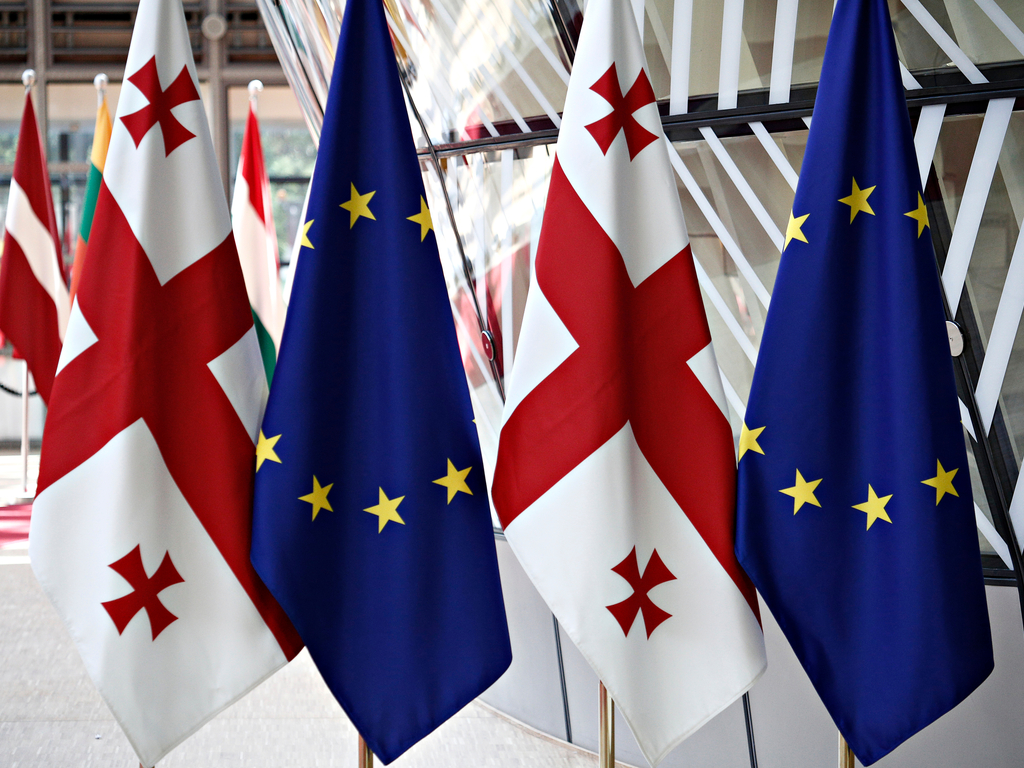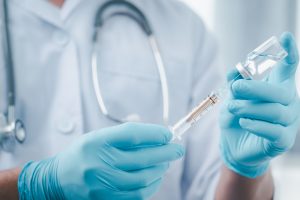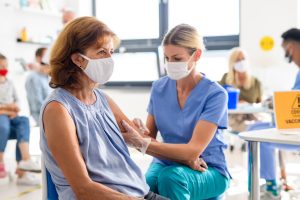The European Union and Georgia held the 5th meeting of the Association Council on 5 March 2019. The Association Council took note of the 2018 Association Implementation Report on Georgia and positively assessed the state of the EU-Georgia relations since the last Association Council in February 2018.
The sides welcomed the excellent state of EU-Georgia relations and reaffirmed their continued commitment to advance Georgia’s deeper political association and economic integration with the EU, as highlighted by the first high-level meeting between the Georgian government and members of the European Commission in November 2018. The Association Council welcomed the discussions that took place at the meeting and noted the readiness of both sides to follow-up on its results. Both sides acknowledged Georgia’s European aspirations, its European choice and the common objective to continue building a democratic, stable and prosperous country. The Association Council took note of Georgia’s “Roadmap 2EU” which aims at enhancing Georgia’s integration with the EU.
Both sides reaffirmed their continued commitments to bring tangible benefits to the lives of Georgian citizens in line with the Association Agenda’s four key areas of cooperation: economic development and market opportunities; strengthening institutions and good governance; connectivity, energy efficiency, environment and climate change; enhancing mobility and people-to-people contacts.
The Association Council welcomed the fact that the Presidential elections, on 28 October and 28 November 2018, were held in an overall competitive environment. It also acknowledged some shortcomings and agreed on the importance of addressing all OSCE/ODIHR recommendations in order to further strengthen the environment favourable for the democratic conduct of elections, especially in view of the parliamentary elections in 2020. The Association Council welcomed the entry into force of the revised Constitution in December 2018 which concluded Georgia’s transition to a full parliamentarian system. The Association Council encouraged all political actors to work together and to maintain an open dialogue, including with civil society, in order to further strengthen democratic institutions, consolidate pluralistic democracy in Georgia and advance reforms. Both sides stressed the need to continue the successful cooperation established between the EU and Georgia on Strategic Communication and countering disinformation.
The Association Council welcomed the progress made over the year by Georgia in the implementation of comprehensive reforms in the rule of law; it also noted some areas where further progress was needed and encouraged Georgia to move ahead with the 4th wave of judiciary reform and to continue strengthening its judicial institutions by upholding, inter alia, transparency and meritocracy in the appointment of judges. The EU underlined its commitment to continue assisting Georgia in its efforts to further reform the judiciary and safeguard the rule of law.
The Association Council welcomed that a great number of Georgian citizens have benefited from short term visa free travel with Schengen countries. It welcomed continuous efforts of the Georgian Government to address violations of the visa-free travel requirement and encouraged Georgia to continue its commitment to counter the increased numbers of unfounded asylum seekers in some Schengen countries. The EU encouraged Georgia to further enhance cooperation with the EU Member States to fight against irregular migration and organised crime.
The Association Council welcomed progress made in the implementation of the Human Rights Strategy and its Action Plan, as well as the establishment of Human Rights Protection Department of the Ministry of Internal Affairs. The EU recognized Georgia’s efforts and encouraged to continue preventing and combating violence against women and domestic violence, gender based violence, as well as promoting gender equality, including by strengthening national institutional capacities. The Council stressed the commitment to the universality of human rights for all, regardless of religion or belief, race, sex, language, sexual orientation, gender identity, ability or other. The Association Council commended Georgia on the adoption of the law on Occupational Health and Safety applying to all spheres of economic activity and encouraged Georgia to continue its work to create an effective labour inspection system in order to further improve working conditions.
Both sides welcomed the progress made by Georgia in the implementation of the Association Agreement, including its Deep and Comprehensive Free Trade Agreement (DCFTA). The EU continued to be the most important partner of Georgia; the total bilateral trade amounted to EUR 2.76 billion in 2018. The EU invited Georgia to identify concrete products having export potential to the EU, on the basis of which assistance will be provided. Both sides welcomed successful implementation of structural reforms and underlined the importance of ongoing reforms related to the improvement of the investment climate in Georgia.
The Association Council welcomed the first disbursement of the Macro-Financial Assistance to Georgia in December 2018 and encouraged Georgia to continue the implementation of outstanding agreed policy measures in order to enable the disbursement of the second installment. The EU encouraged Georgia to ensure sustainability of the already implemented reforms and maintain macro-economic stability.
The Association Council reiterated Georgia’s strategic role in the field of energy, transport and connectivity and increasingly as a transportation and logistics hub in the region. The EU committed to continue engaging closely with Georgia on the connectivity agenda and on the further extension of the Trans-European Transport Network (TEN-T). The Association Council welcomed the first EU-Georgia High Level Transport Dialogue on 29 January 2019. Both sides also highlighted the importance of Black Sea cooperation as a step towards enhancing connectivity and international trade between Europe and Asia.




